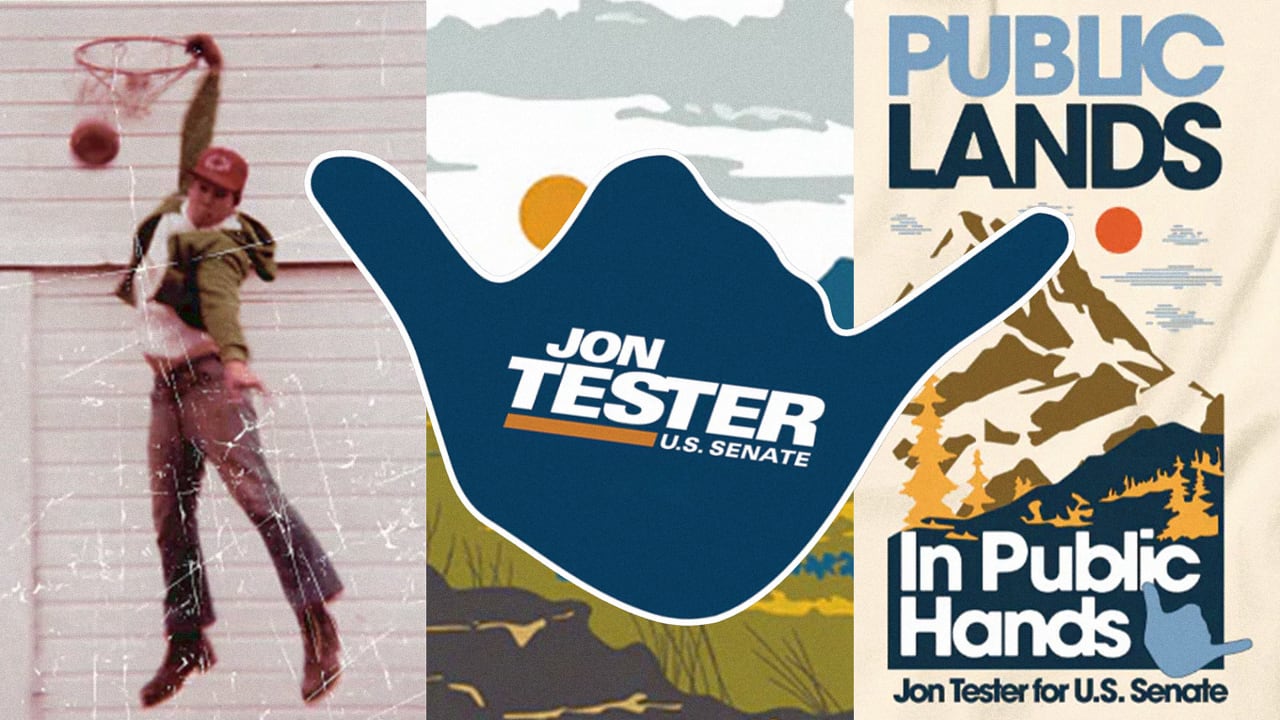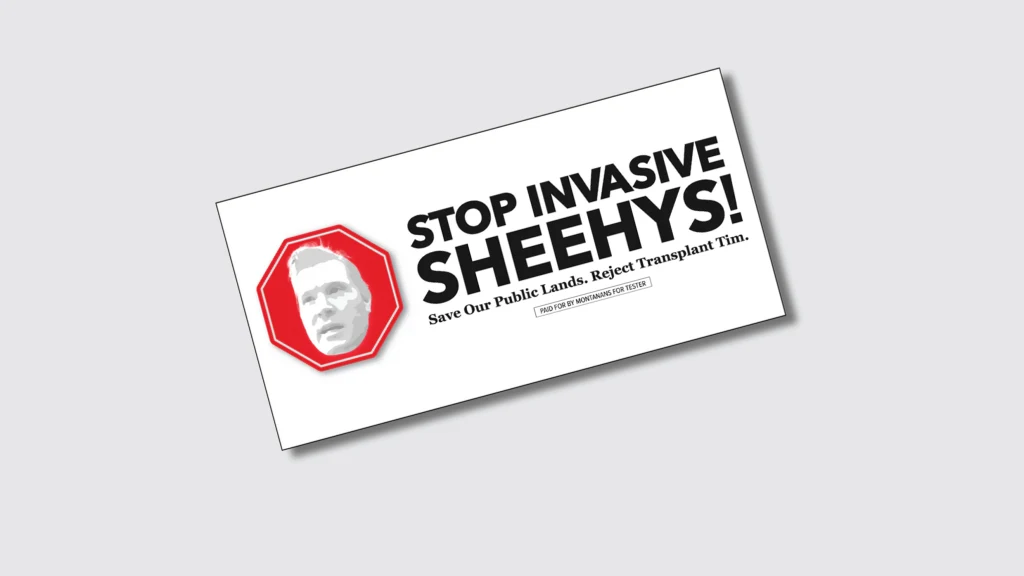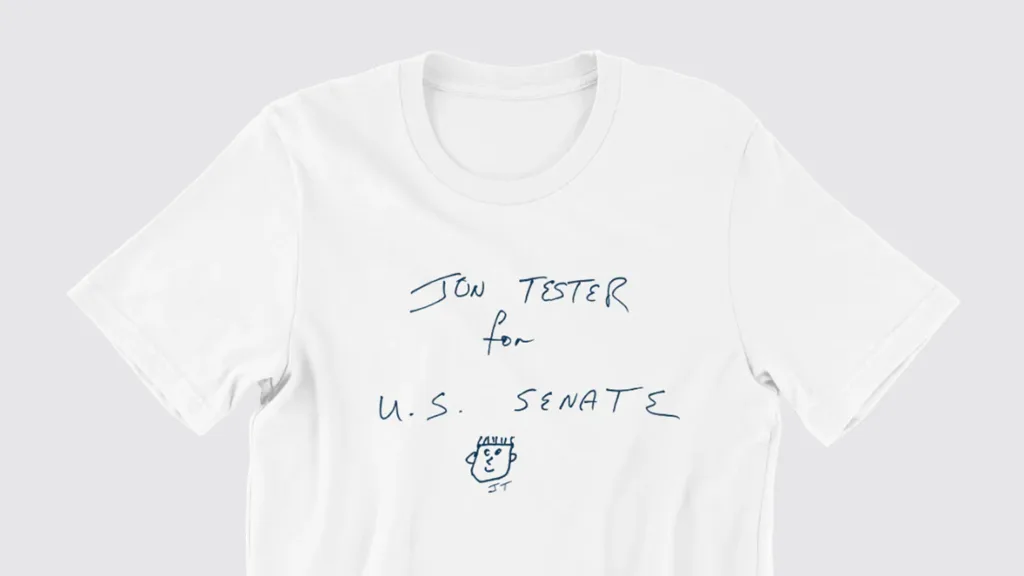Political merch is vital in close races. John Tester’s is a best-in-class example
One of the most robust campaign merchandise operations of the election cycle is in one of the least-populous states. Senator Jon Tester, a Democrat from Montana, is the most vulnerable senator running for reelection this year. A moderate, Blue Dog-style Democrat in a deep-red state that former President Donald Trump won in 2020 with nearly 57% of the vote, his is the only Senate race the nonpartisan Cook Political Report rates as leaning against the incumbent. The race could determine control of the U.S. Senate, and those high stakes show up in the Tester campaign’s online shop. Though selling merch is common among Senate campaigns, it’s not a given. Some incumbents expected to glide to victory are forgoing digital storefronts altogether, like Senator Kirsten Gillibrand of New York and Amy Klobuchar of Minnesota, since candidates don’t have to raise as much money if they’re widely expected to win. Meanwhile, Tester’s shop is stocked with unique items designed not only to bring in small-dollar donors but also to tell a story about the candidate and reinforce his message.

One of the most robust campaign merchandise operations of the election cycle is in one of the least-populous states.
Senator Jon Tester, a Democrat from Montana, is the most vulnerable senator running for reelection this year. A moderate, Blue Dog-style Democrat in a deep-red state that former President Donald Trump won in 2020 with nearly 57% of the vote, his is the only Senate race the nonpartisan Cook Political Report rates as leaning against the incumbent. The race could determine control of the U.S. Senate, and those high stakes show up in the Tester campaign’s online shop.
Though selling merch is common among Senate campaigns, it’s not a given. Some incumbents expected to glide to victory are forgoing digital storefronts altogether, like Senator Kirsten Gillibrand of New York and Amy Klobuchar of Minnesota, since candidates don’t have to raise as much money if they’re widely expected to win. Meanwhile, Tester’s shop is stocked with unique items designed not only to bring in small-dollar donors but also to tell a story about the candidate and reinforce his message.

Tester’s merch pulls from his personal story
Tester’s seven fingers—he lost three in a meat-grinding accident when he was 9 years old—are a recurring theme of his campaign’s merch. His two-fingered hand looks like a hang-loose sign; it’s used as the pattern for a $12 foam finger and $8 sticker and as part of the logo on a $38 baseball cap. A $28 T-shirt with an illustration of Tester’s hands says “7 out of 10 ain’t bad.”
It’s a lighthearted way to play on Tester’s personal story and a reminder to voters that he is a lifelong Montanan and farmer. When Tester wrote about the accident in a social media post last year, he said while he had to give up his dreams of playing the saxophone after losing his fingers, he never gave up farming. “I’ve never forgotten who I am or where I came from,” he wrote. The Tester campaign’s focus on the candidate’s roots is meant to help juxtapose him with his Republican opponent, Tim Sheehy, who moved to the state in 2014.

Merch that turns the tables on Republican opposition messaging
The legacy of interstate migration patterns since the start of the COVID-19 pandemic shows up in political campaigns, but it’s often in the form of Republican messaging against liberal, out-of-state newcomers.
This is the case with Senator Ted Cruz, who’s using the slogan “Keep Texas, Texas” for his reelection campaign, and Texas Governor Greg Abbott, who two years ago sold stickers that read “Don’t Beto My Texas,” during his race against former Representative Beto O’Rourke. Tester flips the script with $8 “Stop Invasive Sheehys!” stickers that show Sheehys’s face in a stop sign and the tagline “Reject Transplant Tim.”
Tester’s largest merch shop category boasts items that celebrate Montana’s public lands—the latest example of Democrats turning to the great outdoors for merch inspiration to highlight their support for environmental issues. Tester’s campaign sells a $16 four-pack of stickers that includes illustrations of outdoorsy scenes from Yellowstone and Glacier national parks.
One of the retro-style posters reads “Public Lands in Public Hands,” with an icon of Tester’s hang-loose hand in the bottom-right corner. Other items feature a vintage photo of him dunking a basketball, and a rudimentary self-portrait that appears on a $28 tee and $18 mug.

A button or T-shirt on its own won’t win an election, and recent polling shows Sheehy in the lead, but Tester’s merch shop is a sign of a larger strategy. His message is that he’s not a carpetbagger but a true Montanan whose values are Montana values, party affiliation aside. If his campaign can successfully sell voters on that message, perhaps Tester can win. And if they can communicate that message simply with branding, all it will take is two fingers: a pinkie and a thumb.






















